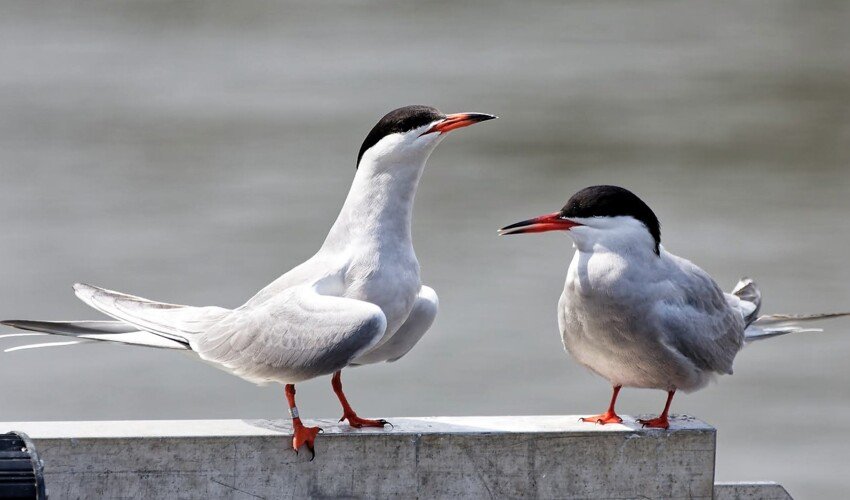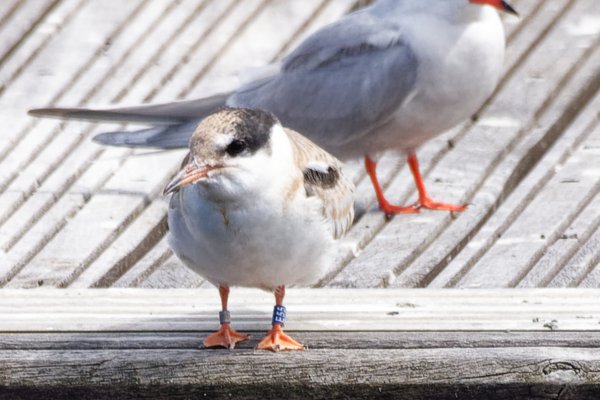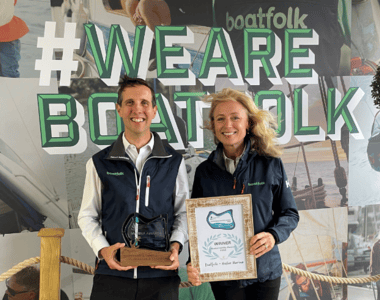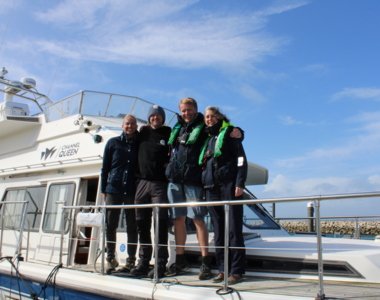-
Bangor Marina Bangor, Northern Ireland
-
Conwy Marina Conwy, North Wales, Wales
-
Deacons Marina River Hamble, Southampton, England
-
East Cowes Marina East Cowes, Isle of Wight, England
-
Haslar Marina Haslar, Portsmouth Harbour, England
-
Penarth Marina Penarth, Cardiff, Wales
-
Portishead Marina Portishead, Bristol, England
-
Portland Marina Portland, Dorset, England
-
Rhu Marina Rhu, Firth of Clyde, Scotland
-
Royal Quays Marina Royal Quays, North Shields, England
-
Weymouth Marina Weymouth, Dorset, England

13th June 2024
Royal Quays
Common Terns at Royal Quays Marina
Common Terns (Scientific name Sterna hirundo, which means 'sea-swallow') are summer visitors to the UK. They spend our winter off the coast of the Gulf of Guinea between Sierra Leone and Ghana and arrive back in the UK between early April and mid-May, in order to take advantage of the relatively long daylight hours of our UK summer.
Common Terns have a history of nesting at the Marina. The originally colony was on the pier where The Lock bistro is now. When that area was re-developd an alternative nest site was provided by way of a tethered raft In the Marina basin.
The terns quickly adopted the raft and a thriving colony (usually of around 50 pairs) has successfully established on the raft. These birds have a complex courtship display when they arrive back at the breeding colony. During courtship, a male flies around with a fish in its beak, which is presented to a prospective partner.
These intercontinental travellers raise their chicks on a diet of small fish caught in the Tyne or off-shore and they can be seen commuting between the Marina and the river. Sometimes the terns can be found feeding in the lock or just off the entrance to the marina. As they carry fish in their bills to feed their chicks they can be seen (and heard!) flying high above the breeding colony, screaming excitedly.
Common Terns are highly territorial when it comes to their nest sites, not surprising when they’re only 20 inches (50 cm) wide. Like all parents, these birds are very protective of their eggs and chicks and will work together to protect the nesting colony from potential predators such as Herring Gulls, Crows, Herons and even Humans. If you get too close to them they may give a distinct alarm-call and start to dive bomb you to enourage you to move further away. They will usually give up their dive bombing If you move away but they can be aggressive and terns have sharp beaks and can sometimes make physical contact. A dive bombing tern will usually go for the highest point on whatever they see as a threat (possibly your head!) and one way of protecting yourself is to hold something above your head…an umbrealla, walking pole, boathook or similar.
Many tern colonies around the UK have been hit by the Highly Pathogenic Avian Influenza epidemic which has spread through seabird colonies since summer 2022. In 2023, there were a number of fatalities among the adults and chicks in the colony here on the Tyne. We don't have population figures for 2024 as yet but so far it looks as if the terns are back at the marina in good numbers. In the face of the Bird Flu outbreaks, every chick raised here will be a precious addition to the world population of these globe trotting seabirds.
In 2023 some of the tern chicks raised at the marina were fitted with special numbered leg rings by a fully licensed bird ringer and we will be looking out for these birds to return to the Tyne in 2025.






















